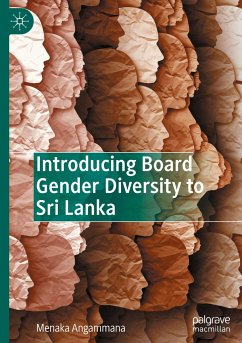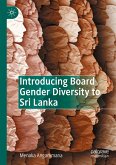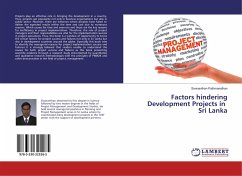Through a socio-legal lens, this book focuses on the feasibility of implementing board gender diversity rules in Sri Lanka. It demonstrates that board gender diversity rules could be a valuable tool for corporate governance development and to promote gender equality in society.
The International Financial Institutions (IFIs) have reasoned that good corporate governance practices can develop the economy by attracting investors and securing foreign direct investment. Accordingly, these IFIs have included corporate governance reform as a condition for funding to developing countries. Among these reforms, board gender diversity is acknowledged as a legal concept that is capable of improving corporate governance practices and promoting gender equality in society. The benefits to corporate governance, often referred to as the economic benefits of the concept, are based on the contribution women directors can make towards advancing board effectiveness. The equality benefits underpinning this strategy depict the manner in which gender equality could be promoted by board gender diversity rules.
Sri Lanka is thus an illustrative example of a developing country forced by IFIs to improve its corporate governance practices as a step towards advancing economic growth. However, the Sri Lankan legislators have not yet introduced board gender diversity rules as a measure to improve corporate governance practices within the country. This book addresses some of the ways in which board gender diversity rules could be introduced to Sri Lanka.
The International Financial Institutions (IFIs) have reasoned that good corporate governance practices can develop the economy by attracting investors and securing foreign direct investment. Accordingly, these IFIs have included corporate governance reform as a condition for funding to developing countries. Among these reforms, board gender diversity is acknowledged as a legal concept that is capable of improving corporate governance practices and promoting gender equality in society. The benefits to corporate governance, often referred to as the economic benefits of the concept, are based on the contribution women directors can make towards advancing board effectiveness. The equality benefits underpinning this strategy depict the manner in which gender equality could be promoted by board gender diversity rules.
Sri Lanka is thus an illustrative example of a developing country forced by IFIs to improve its corporate governance practices as a step towards advancing economic growth. However, the Sri Lankan legislators have not yet introduced board gender diversity rules as a measure to improve corporate governance practices within the country. This book addresses some of the ways in which board gender diversity rules could be introduced to Sri Lanka.








